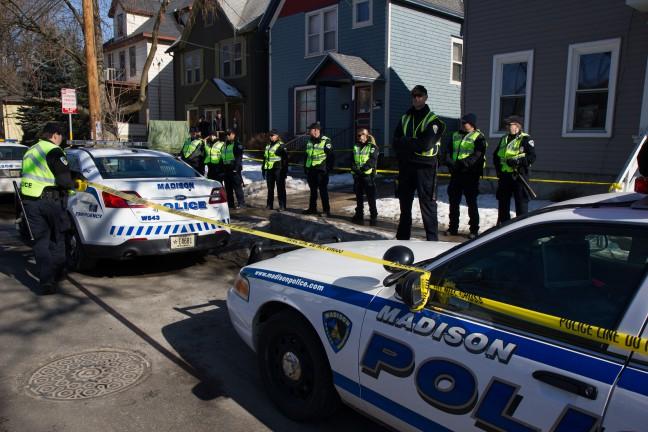March 23, just a little after midnight in Madison, the University of Wisconsin BIPOC Coalition began a live stream on Instagram. They reported that a Madison Police officer was refusing to provide medical care to a Black houseless man while he was having respiratory issues.
Realizing the urgency and the importance of the story, I joined the stream and spoke with members of the coalition as well as two crisis responders who were at the scene.
“We saw someone with breathing issues and found out he had an asthma attack. We contacted the MPD to get him an inhaler as his situation was deteriorating,” UW BIPOC Coalition members said. “The police were not letting us help this man nor request an ambulance until he started to lose consciousness and collapsed.”
According to witnesses on the scene, MPD said they did not respond because the situation was complicated.
Coalition members repeatedly requested the police get the man the help he needed, fortunately, crisis responders Red and Rusty assisted the coalition members.
When an ambulance finally arrived, the man received chest compressions and was brought to a nearby hospital.
“The police almost let this man die,” Coalition members said.
Red said that, “police value protocols more than the health and safety of the people.”
During the Black Lives Matter protests this summer, MPD officers used tear gas, to protect property from being damaged, risking the safety of protestors and surrounding pedestrians.
Red said that, “police presence makes every crisis situation worse. This is because they trigger other mental issues, especially for those people with PTSD from interacting with the law enforcement.”
In an interview for The Badger Herald Podcast, UW alumnus Harvey Clay said police do not know how to solve crisis situations because they do not go through proper mental health evaluations themselves and are not qualified to address those issues.
This incident, paired with the many recent cases of police brutality, illustrate just how engrained both violence and racism are in our modern-day militarized policing system.
To end police violence and police brutality, Wisconsin must defund its police department and re-invest such funding in other social programs such as healthcare and public education.
Wisconsin must adopt the CAHOOTS, or Crisis Assistance Helping Out On The Streets, model.
By using the CAHOOTS model, the state would practice community policing, where teams of two respond to crises. These teams would consist of one trained medical professional and one experienced crisis worker. This combined expertise, would allow the teams to effectively de-escalate crisis situations.
From this incident, we also see how MPD views Madison’s unhoused population. Was MPD reluctant to call an ambulance because this man is unhoused? Or because he is Black? Either way, when someone needs medical attention, you call an ambulance. It is not complicated.
What the MPD did, letting that man almost die on scene, was inexcusable, inhumane and intolerable. The involved officers should be suspended and investigated immediately.
It is up to us and all citizens of Madison to expose such horrible police responses. Even before defunding the police, we must hold officers involved in such misconduct accountable.
Ken Wang (kwang@badgerherald.com) is a sophomore majoring in political science.


